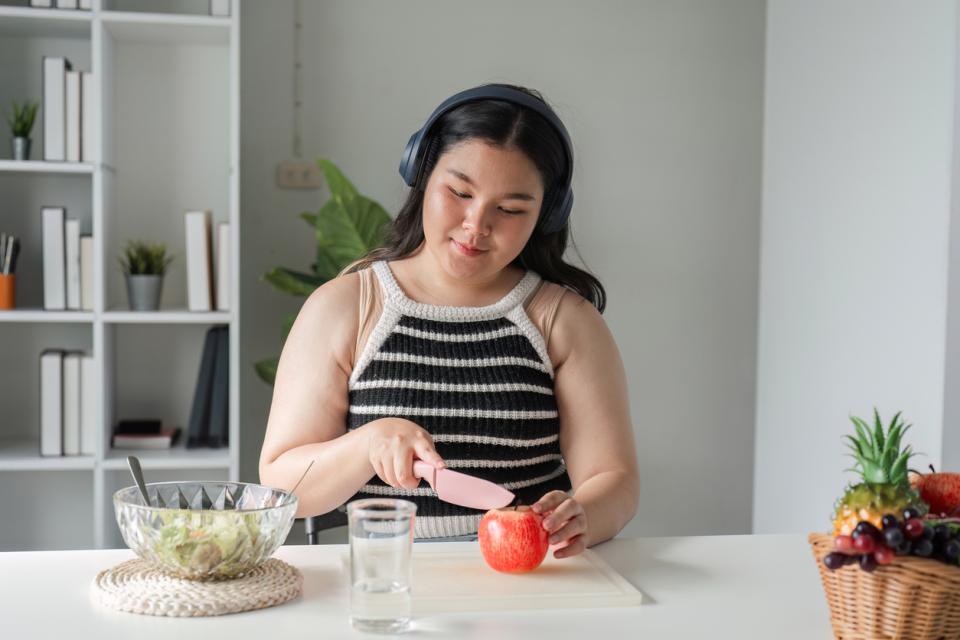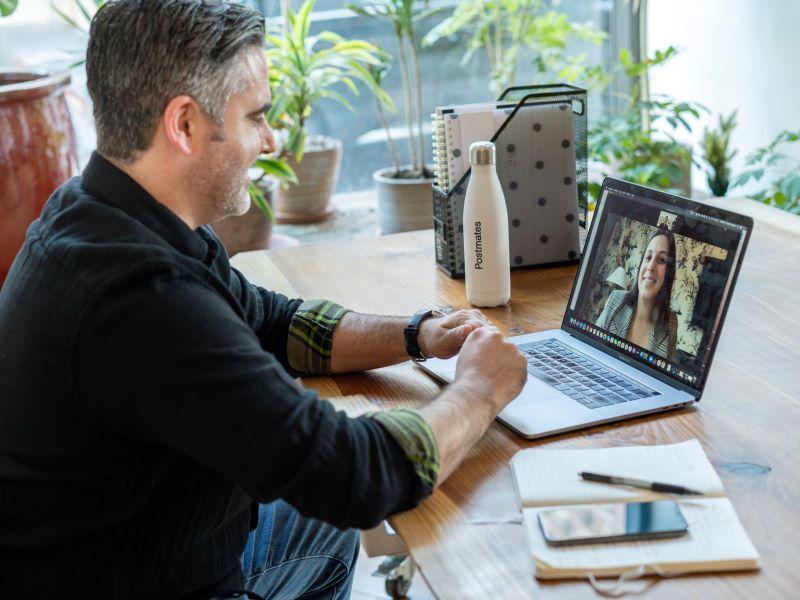Many universities now offer additional institution-wide provision to improve student mental health, such as counselling, alongside traditional recreational facilities. In the classroom, academic staff can also play a role in supporting well-being.
Our degree apprenticeship department trialled the use of Bluetooth headsets to help online students spend more time moving and less time at their screens. The results were encouraging.
Reduce screen time and encourage movement
We invested in wireless Bluetooth headsets to promote physical movement and self-regulated learning – where learners take an active role in the learning process. Students used these headsets to reduce time spent at their desks and take control of how and where they learned.
Implementing this initiative involved changing the way we taught. Actions included:
- Converting sections of lectures to audio format and posting audio versions of suggested readings
- Advocating for students to engage in learning during off-screen activities, such as walking and meal preparation
- Encouraging students to listen to podcasts or use screen reading tools to listen to course content, rather than read it.
How moving more improved students’ well-being
Feedback from students has emphasised an increased sense of autonomy as a result of using these headsets. Some reported enhanced engagement levels and reduced stress, noting that integrating movement with learning tasks greatly alleviated cognitive load and increased alertness.
- Spotlight guide: Make good mental health a university priority
- How to help a student in mental health distress
- Students learn better on caring campuses – here’s how to create one
Using the headsets also helped students with multitasking and balancing their workloads, with one noting, “It [the Bluetooth headset] helps [me] to multitask; this is important as often I am rushing from one place to another from work in between webinars, and it helps a lot.” Another remarked, “The headset supported me in balancing home responsibilities while learning on the go, as well as being able to get fresh air and remain alert.” These positive responses highlight the effectiveness of adaptive learning tools in promoting not only academic achievement but also personal well-being and balance – elements that ultimately contribute to improved student satisfaction.
How to encourage movement
Educators must be proactive to normalise movement and learning away from their desks. We recommend setting learning norms to define what you expect from students. Some examples of this that worked well for us include:
- Asking students to share their intended use of Bluetooth headsets, to reassure them they have autonomy over how they learn
- Running sections of the lectures away from the computers ourselves (ie, while we don’t recommend going for a vigorous run, sitting on a chair outside or on a sofa seemed to work well)
- Acknowledging when students were self-regulating – for example, by commenting on a student preparing lunch and asking what they’re making.
We also recommend focusing on the metacognitive benefits of taking breaks away from the screen to empower students to self-regulate their learning by establishing an environment where physical movement and screen breaks are seen as learning tools. Ask students to reflect on how they learn when they are listening to an audio version of an article while on a run, or how they felt when they left the house for 10 minutes mid-lecture. If we can develop these meta-cognitive skills, we nurture well-rounded graduates who can manage their well-being beyond university.
It’s not only students who can benefit from the use of these kinds of tools. Educators could consider joining meetings while on a walk – though we would recommend pre-warning other participants to normalise these kinds of activities.
In an increasingly volatile world, institutions and departments must invest in initiatives that support mental health. As a result, students become more resilient and self-reliant, and more likely to achieve their full potential – both academically and personally.
Michelle Civile and Julie Pepper are senior lecturers at the University of Exeter.
If you would like advice and insight from academics and university staff delivered direct to your inbox each week, sign up for the Campus newsletter.




comment